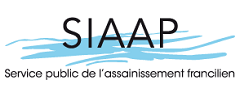Toxic chemicals in your living room
Delegate Decisions Threaten the Integrity of the Stockholm Convention
12.05.2009 |IPEN Press Release
WECF, as a member of international networks IPEN (The International POPs Elimination Network), joined the 4th conference of the members of the Stockholm Convention.
IPEN press release in English:
Geneva, 10 may 2009 - Government delegates to the Stockholm Convention on Persistent Organic Pollutants (POPs) made the historic decision to add nine new chemicals to its list of substances that governments must control. However, the control measures approved for three of these chemicals listed are disturbingly inadequate and are inconsistent with the Convention’s objective, which is to protect human health and the environment.
The three substances include two brominated flame retardants (pentaBDE and octaBDE) used in furniture foams and in electrical office equipment. The third is perfluorooctane sulfonate (PFOS), a chemical used in manufacturing and consumer products.
The delegates agreed that these substances persist in the environment, travel long distances, and cause harm to human health and the environment. Children in all parts of the world are exposed to all three chemicals, which persist in their bodies.
All new production of both pentaBDE and octaBDE has recently stopped. Ongoing human exposure to these chemicals comes from the products and wastes in which they are still present. The meeting agreed to allow the continued recycling and reuse of products contaminated with these chemicals until 2030. In many cases, 10-20% of the composition of some plastic products and upholstery foams consists of these harmful chemicals.
“This will permit foam in furniture containing 18% pentaBDE to be chopped up, used as backing in new carpets, and returned to our homes where exposure will continue,” said Professor Katima of the University of Dar Es Salaam, who is also the Co-Chairman of the International POPs Elimination Network. “The provisions will also allow these highly contaminated products to be exported from wealthy countries to the developing world, Africa in particular,” he added.
The third listed chemical, PFOS, is so persistent that it has shown no degradation under any environmental condition tested. In one study of 299 infants in the United States, PFOS was found in the blood of 297 of them. After listing PFOS, delegates decided that its ongoing production and 15 or more uses will be allowed to continue, including uses of PFOS that disburse it directly into the environment, such as in fire fighting foams and pesticides.
The International POPs Elimination Network (IPEN) welcomes the decision of the Convention to list an additional nine POPs and will continue to promote the full and effective implementation of the Convention’s provisions.
While IPEN is very disappointed that the agreed control measures for PFOS and the flame retardants are woefully inadequate, NGOs in the network will continue to press for improvements.
Downloads:
For background information on the chemicals listed, see the IPEN Guide to New POPs: http://www.ipen.org/ipenweb/documents/ipen%20documents/newpopbooklet_09.pdf
Contact:
Mariann Lloyd-Smith, PhD, IPEN co-chair, +006-141-362-1557
Jamidu Katima, PhD, IPEN co-chair, +255-22-241-0753
IPEN press release in German:
Gesundheitsschädigende Chemikalien in Ihrem Wohnzimmer
Entscheidungen der COP 4 gefährden die Stockholm Konvention
(Genf/München) Die Mitglieder der Stockholm Konvention zu Persistent Organic Pollutants (POPs) haben auf ihrem vierten Treffen - COP4, das vergangene Woche in Genf statt fand, mit einer historischen Entscheidung neun weitere besonders gefährliche Chemikalien auf die Verbotsliste gesetzt. Damit erhöht sich Zahl des bisher so genannten Dreckigen Dutzents (dirty dozen) auf 21 Chemikalien, deren Produktion ganz oder teilweise eingestellt werden muss. Auch wenn dies als Erfolg zu verbuchen ist, sind jedoch die Ausnahmen, die für drei der neu gelisteten Chemikalien gebilligt wurden, unzureichend und mit den Zielen der Konvention, die menschliche Gesundheit und die Umwelt zu schützen, unvereinbar.
Diese Ausnahmeregelungen betreffen drei Stoffe: zwei bromierte Flammschutzmittel (PentaBDE und OctaBDE), die in Schaumstoffen für Möbel und in elektronischen Geräten benutzt werden und Perfluorooctane Sulfonate (PFOS). PFOS werden in vielen Konsumprodukten, wie Textilien, Papier oder Haushaltsreiniger verwendet.
Der Konferenzbeschluss erlaubt bis 2030 das Recycling und die Wiederverwendung von Produkten, die mit PentaBDE und OctaBDE kontaminiert sind. In vielen Fällen, sind zehn bis 20 Prozent davon z.B. in Plastikprodukten oder aufgeschäumten Polstermöbeln enthalten. Kürzlich wurde zwar die Produktion der beiden Substanzen gestoppt. Menschen sind diesen jedoch weiterhin ausgesetzt, weil sie sich noch in vielen Produkten und im Abfall befinden.
„Diese Entscheidung erlaubt beispielsweise, Schaum in Möbeln, der bis zu 18 Prozent pentaBDE enthält, zu zerkleinern und ihn als Teppichgrund in neuen Teppichen wieder zu verwenden. Er kehrt also in unsere Wohnungen zurück und wir sind wieder der Exposition dieser schädlichen Chemikalien ausgesetzt“, sagt Professor Katima von der Universität Dar Es Salaam und Vorsitzender von IPEN. „Die Vorschriften erlauben es auch, dass diese hoch kontaminierten Produkte von reichen Ländern in Entwicklungsländer, speziell nach Afrika, exportiert werden.“ Dort werden sie unter unzureichenden Arbeitsbedingungen und Umweltschutzmaßnahmen recycelt. So wird Menschen und der Umwelt in Entwicklungsländern und in Industrieländern durch diese Produkte geschadet.
Die dritte gelistete Chemikalie, PFOS, ist derartig persistent, dass sie sich auch unter verschiedensten Umweltbedingungen nicht abbaut. In einer amerikanischen Studie wurde bei 297 von 299 untersuchten Kindern PFOS im Blut nachgewiesen. Zwar wurde PFOS gelistet, aber die Delegierten haben entschieden, dass weiterhin die Produktion und der Gebrauch in 15 oder mehr Anwendungen erlaubt ist, inklusive der Gebrauch, bei dem PFOS direkt in die Umwelt gelangt, etwa in Form von Löschschaum und Pestiziden.
Die drei gelisteten Substanzen schädigen so nach wie vor die Umwelt und unsere Gesundheit. Kinder auf der ganzen Welt sind auch in Zukunft diesen drei toxischen und schädlichen Substanzen ausgesetzt, die sich in ihren Körpern anreichern.
IPEN begrüßt grundsätzlich die Entscheidung der Konvention, weitere neun POPs in die Liste aufzunehmen, wird aber weiterhin die volle und effektive Implementierung der Bestimmungen der Konvention der vorantreiben und sich hinsichtlich der unzureichenden Kontrollmaßnahmen für PFOS und Flammschutzmittel weiterhin intensiv für die Verbesserung der Situation einsetzen.
Downloads:
Für Hintergrundinformation zu den gelisteten Chemikalien: http://www.ipen.org/ipenweb/documents/ipen%20documents/newpopbooklet_09.pdf
Das internationale POPs Elimination Network (IPEN) ist ein weltweit öffentlich beachtetes NGO Netzwerk mit mehr als 700 Mitgliedsorganisationen in 100 Ländern. IPEN Mitgliedsorganisationen in vielen Ländern und Regionen arbeiten zusammen um das gemeinsame Ziel eines starken und effektiven weltweiten POPs Vertag voranzutreiben. IPEN arbeitet mit den NGOs auf nationaler und regionaler Ebene zugunsten der Vernichtung von POPs als einen Schritt in eine zukünftige Welt, in der giftige Chemikalien nicht länger die menschliche Gesundheit und die Umwelt schädigen. www.ipen.orgRelated News
Human Biomonitoring for Europe
Vienna, 26 September: stakeholder forum
28.09.2018
WECF sends letter to Dutch Secretary of State concerning EU policy on EDCs
In a joint statement WECF and the EDC Free Coalition ask Dutch State Secretary Dijksma to insist on major changes at the Environmental Council meeting to protect our health and environment.
21.06.2016
Commission's EDC criteria proposal: More humans will have to be harmed before action is taken
The European Commission presented today its proposal for criteria to identify endocrine disrupting chemicals (EDCs). WECF and the EDCfree Coalition condemn strongly the decision.
15.06.2016
WECF film "How to protect children from EDCs" now available in Spanish
Pregnant women know it is important to avoid alcohol, nicotine and certain foods. However, what is less well known is that many everyday products contain pollutants that can also be harmful to your baby. WECF's film gives practical advice on how to avoid exposure to EDCs. It now also available in Spanish.
13.06.2016




































